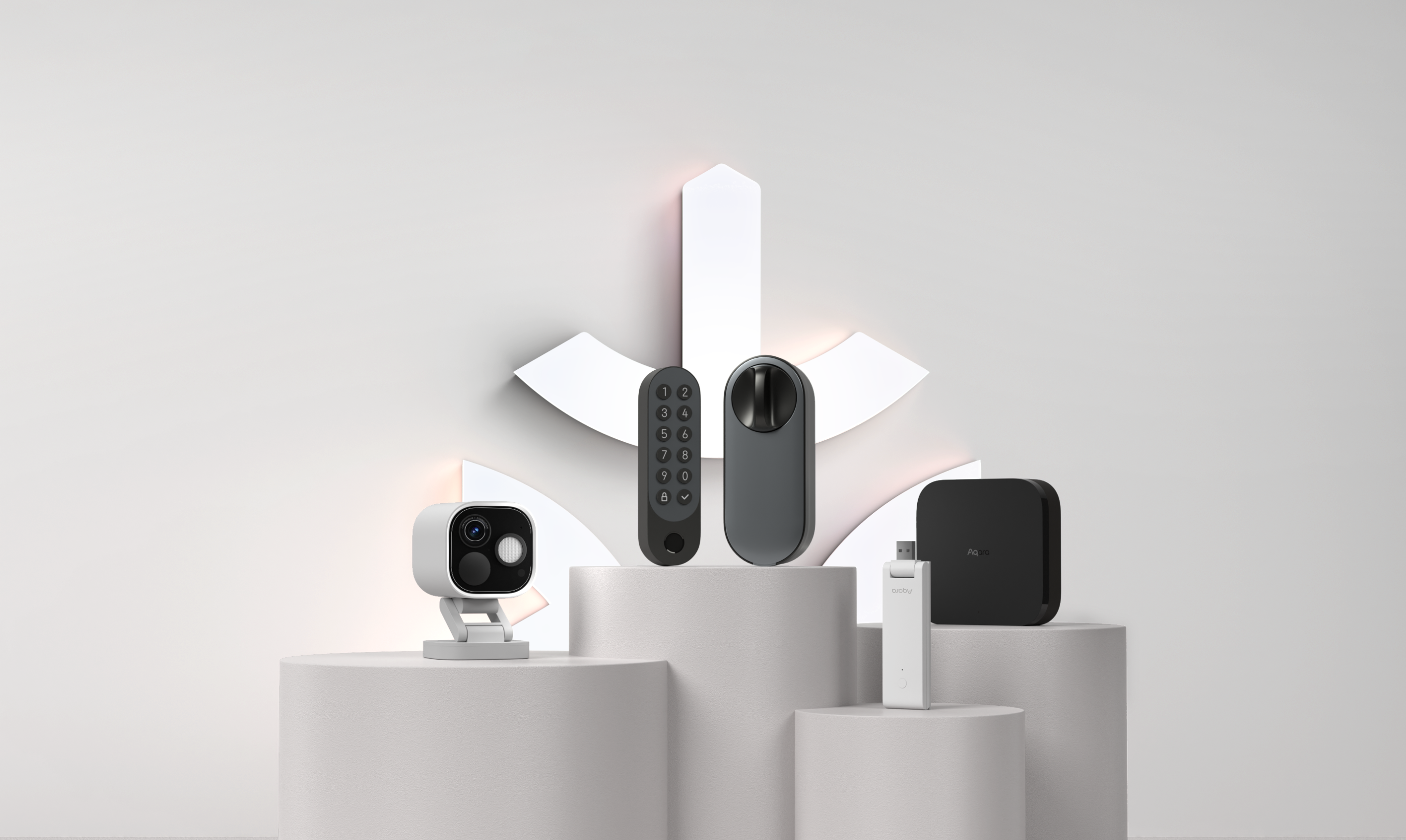Aqara’s Matter controllers, including the Camera Hub G5 Pro, Doorbell Camera Hub G410, Hub M3, and Hub M100 pictured, can now support over 50 Matter device types.
Aqara is adding support for over 50 new Matter device types, making it one of the most comprehensive smart home platforms in terms of Matter support, alongside Samsung SmartThings and Home Assistant.
The company is also bringing advanced bridging to all its Matter controllers, allowing you to integrate Aqara’s many advanced automation features into any Matter-compatible smart home platform via scenes and triggers. This includes Apple Home, Amazon Alexa, and Google Home. The new update also lets you bridge Matter devices that are not yet supported by a platform into those ecosystems.
The new Matter device types that can now connect to Aqara Matter controllers include:
Robotic vacuums
Dimmable plugs
Smoke and CO alarms
Air quality sensors
Leak, freeze, and rain sensors
Curtains and blinds
Fans and air purifiers
Air conditioners and heat pumps
Water valves and pumps
Pressure sensors
Solar panels and battery storage
Electric vehicle chargers
Washing machines and dryers
Fridges and freezers
Cooktops, hoods, and kitchen surfaces
Ovens and stoves
Water heaters
Video players and speakers
This is in addition to sensors, thermostats, switches, and lights, which were already supported. Aqara says the update will roll out with Aqara Home version 5.1.9 and Matter Controller firmware version 4.3.5 later this month.
Aqara seems committed to making its platform open and interoperable, stating that it believes interoperability is essential to move the smart home industry forward. “By extending Matter support, we aim to offer users greater flexibility and ensure that Aqara products remain useful across a wide range of platforms,” said Eugene You, CEO of Aqara.
Aqara has long worked with all the major smart home platforms, including Apple Home, Amazon Alexa, Google Home, and more recently SmartThings, and it’s now positioning itself as a central part of the Matter smart home.
Aqara hubs work with its line of Zigbee-based smart home products; several are also Thread border routers. The company says they have been optimized to support Thread network sharing, meaning they can join existing Thread networks managed by Apple HomePods, Amazon Echos, or Google Nest hubs, for example. However, compatibility will depend on those platforms’ implementation of Thread. This should help provide a stronger network for Thread smart home devices.
“By extending Matter support, we aim to offer users greater flexibility and ensure that Aqara products remain useful across a wide range of platforms.”
Advanced bridging, which was introduced with the M3 hub earlier this year, will come to all current and upcoming Aqara Matter controllers, even the entry-level Hub M100. This brings two benefits. First, you can bridge Matter devices into platforms that don’t yet support that device type, and second, you can use Aqara’s advanced automation features and scenes in any Matter-compatible platform.
The latter ability means that you can use Aqara’s G4 Video Doorbell’s facial recognition feature as a trigger in an Apple Home automation that turns your lights on when you come home. The facial recognition trigger is added to Apple Home as a virtual “occupancy sensor,” according to Aqara.
Other advanced features that can be translated as either “virtual occupancy sensors” or “virtual plugs” include package detection from a camera’s on-device AI, fall detection from Aqara FP2 mm-wave sensor, and automations triggered by a device’s energy usage. Fingerprint sensing, gesture control, and presence sensing can all also translate, according to Aqara.
This advanced bridging feature is not native to the Matter spec, but is something a hub manufacturer needs to develop. Home Assistant has similar capabilities that allow you to import its scenes, scripts, functions, and other non-Matter-supported entities to connected platforms.
Aqara says advanced bridging is essentially a stopgap solution that allows users to access its full features in any Matter platform until (or if) Matter gains support for these more advanced features.

